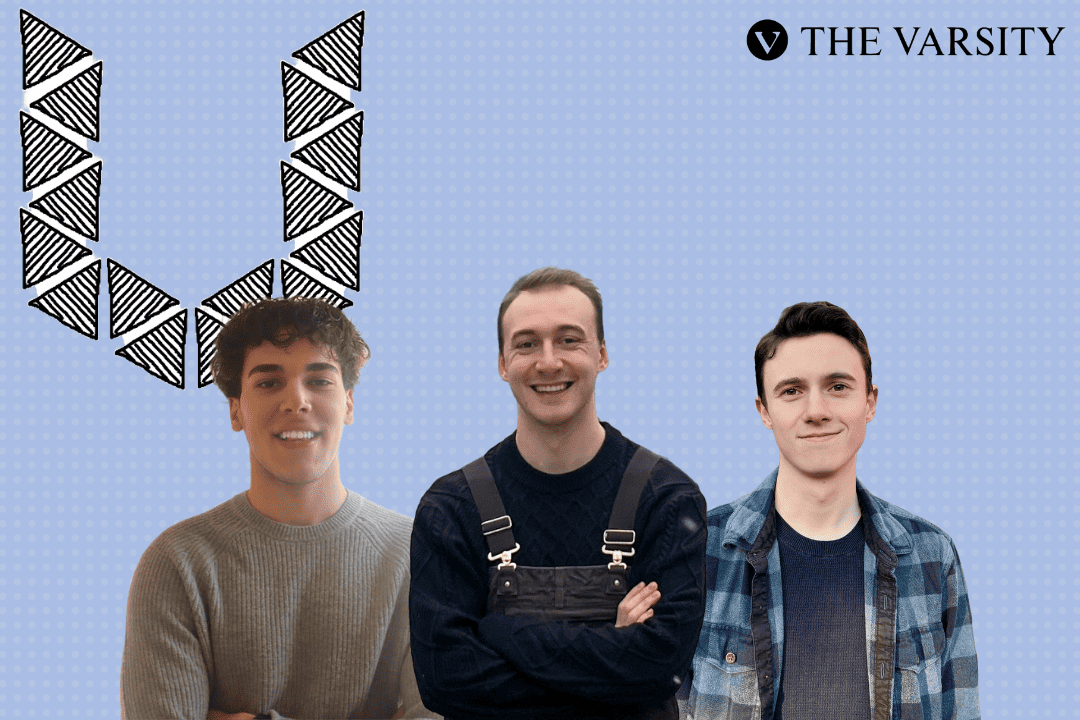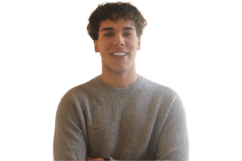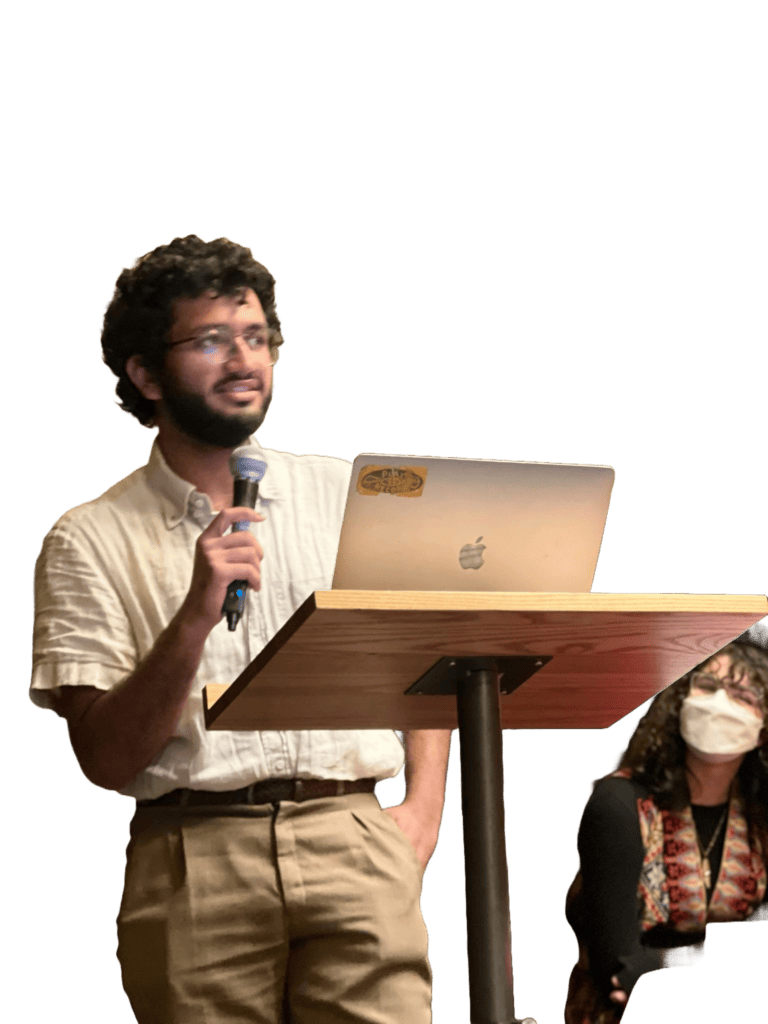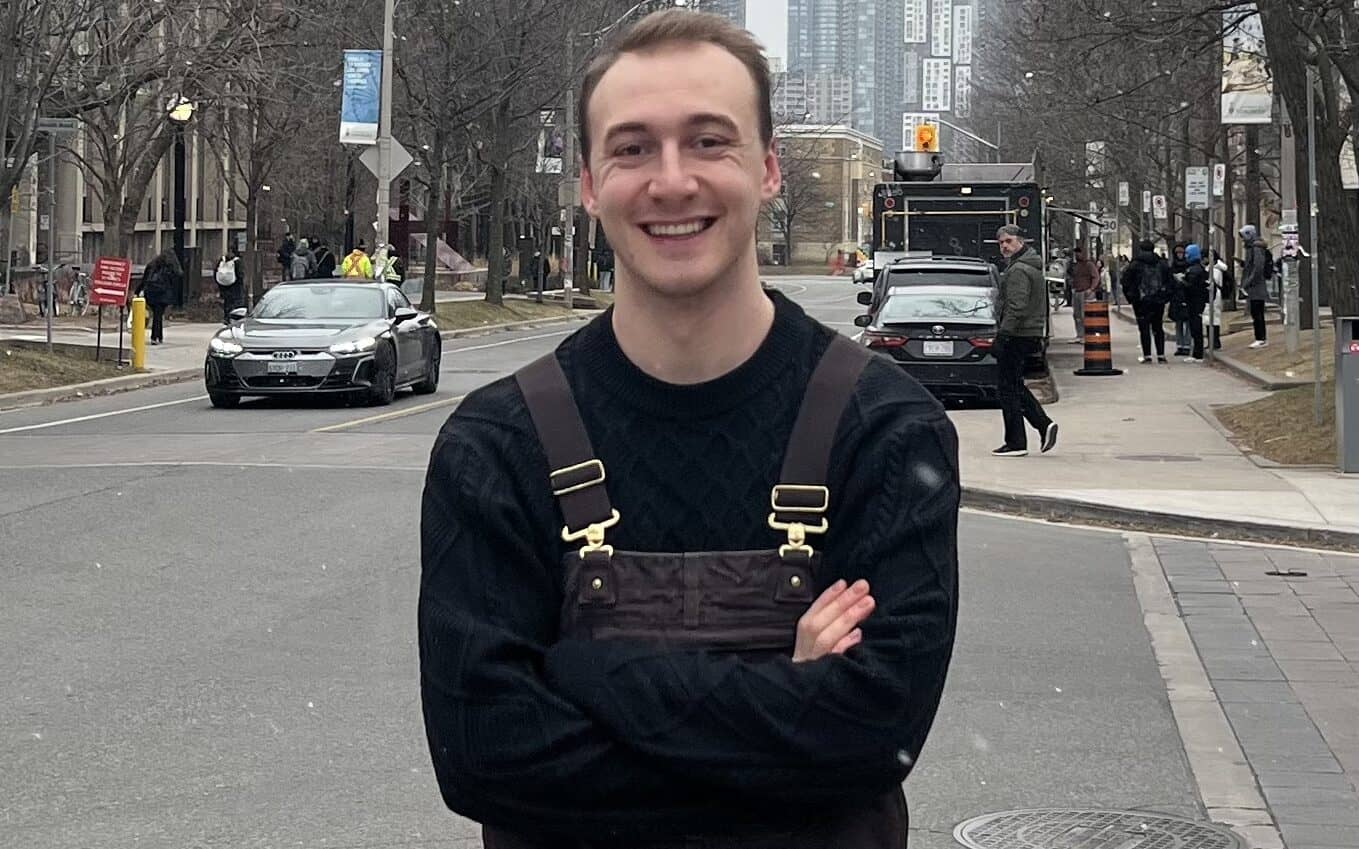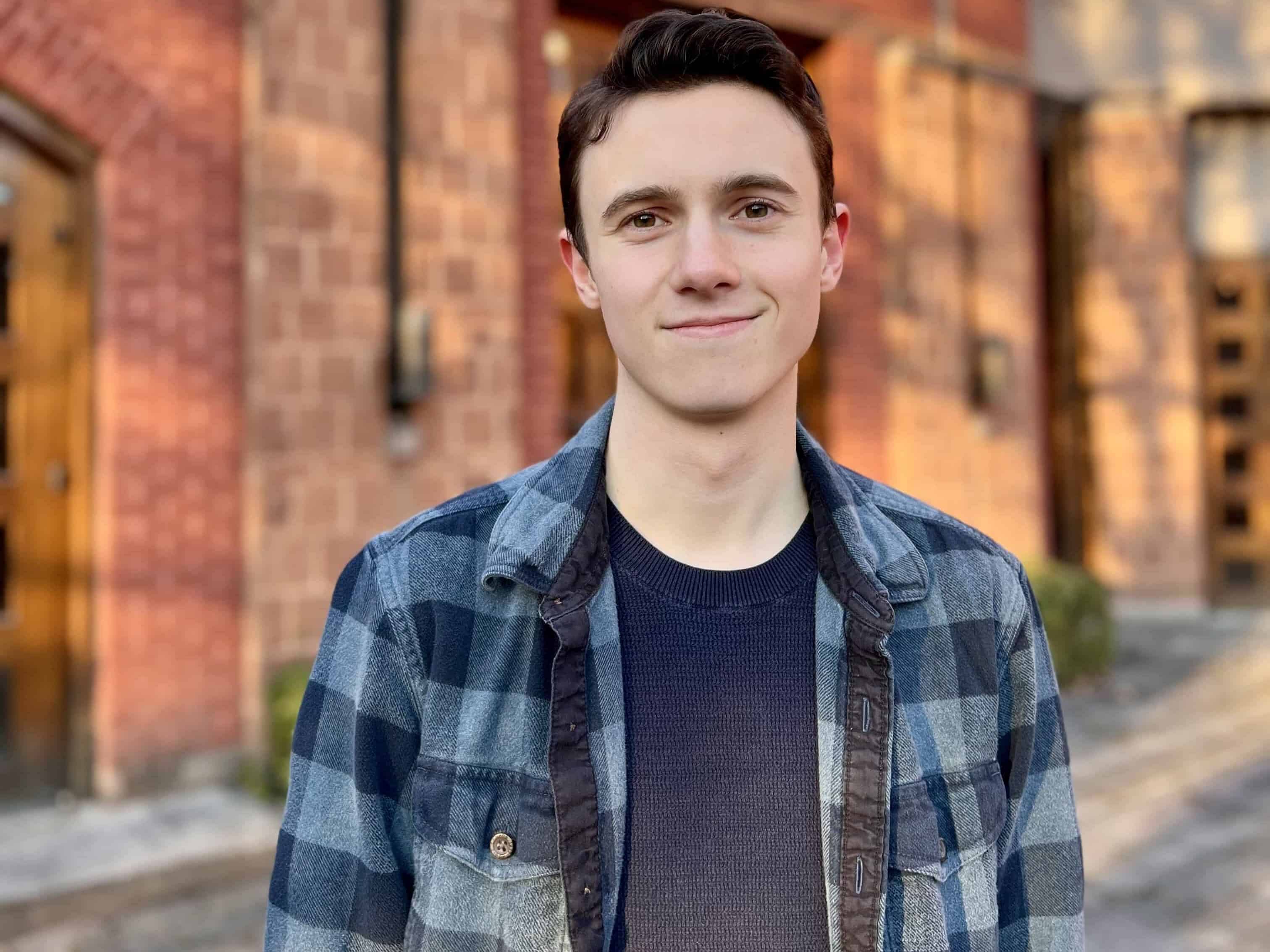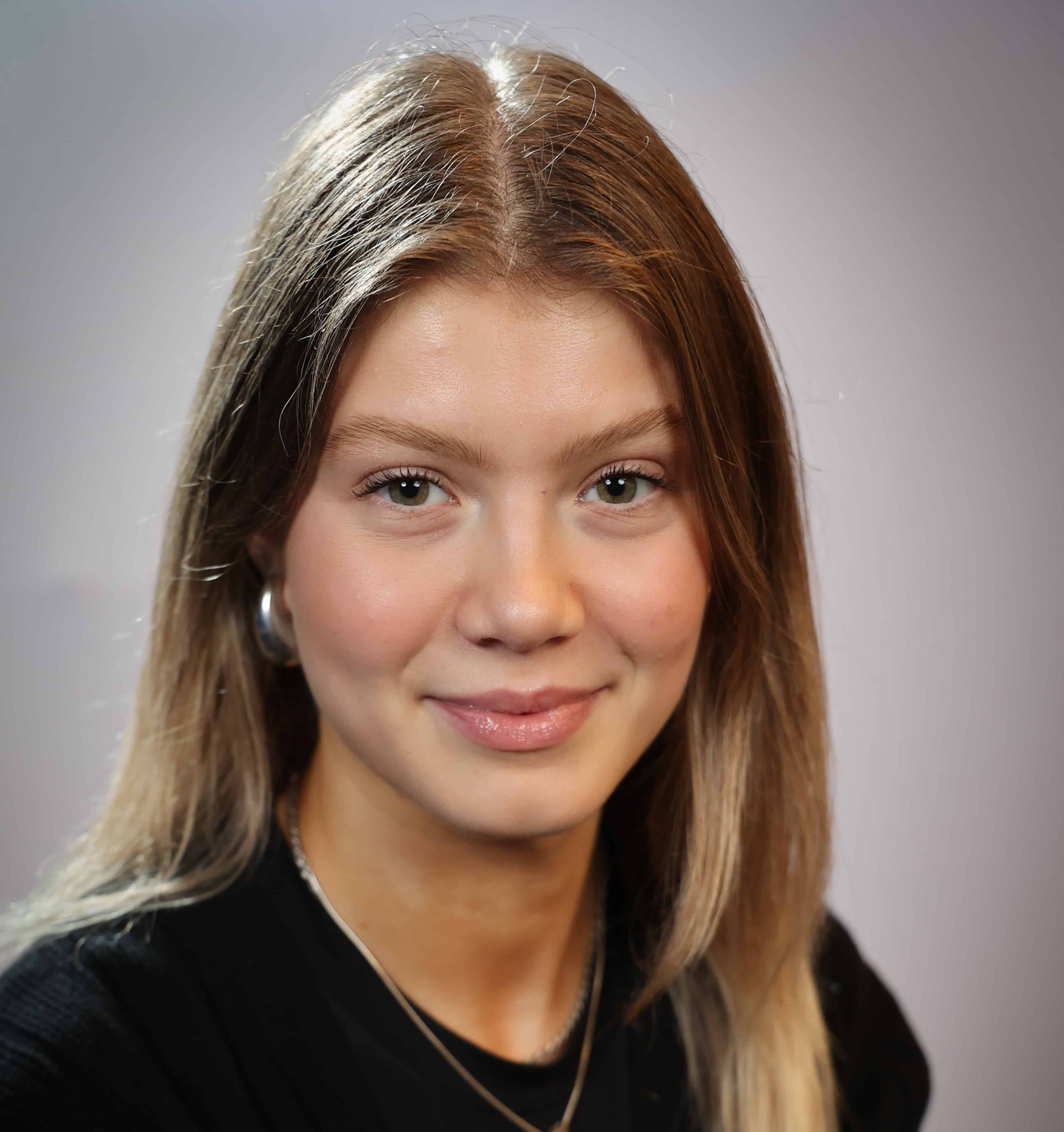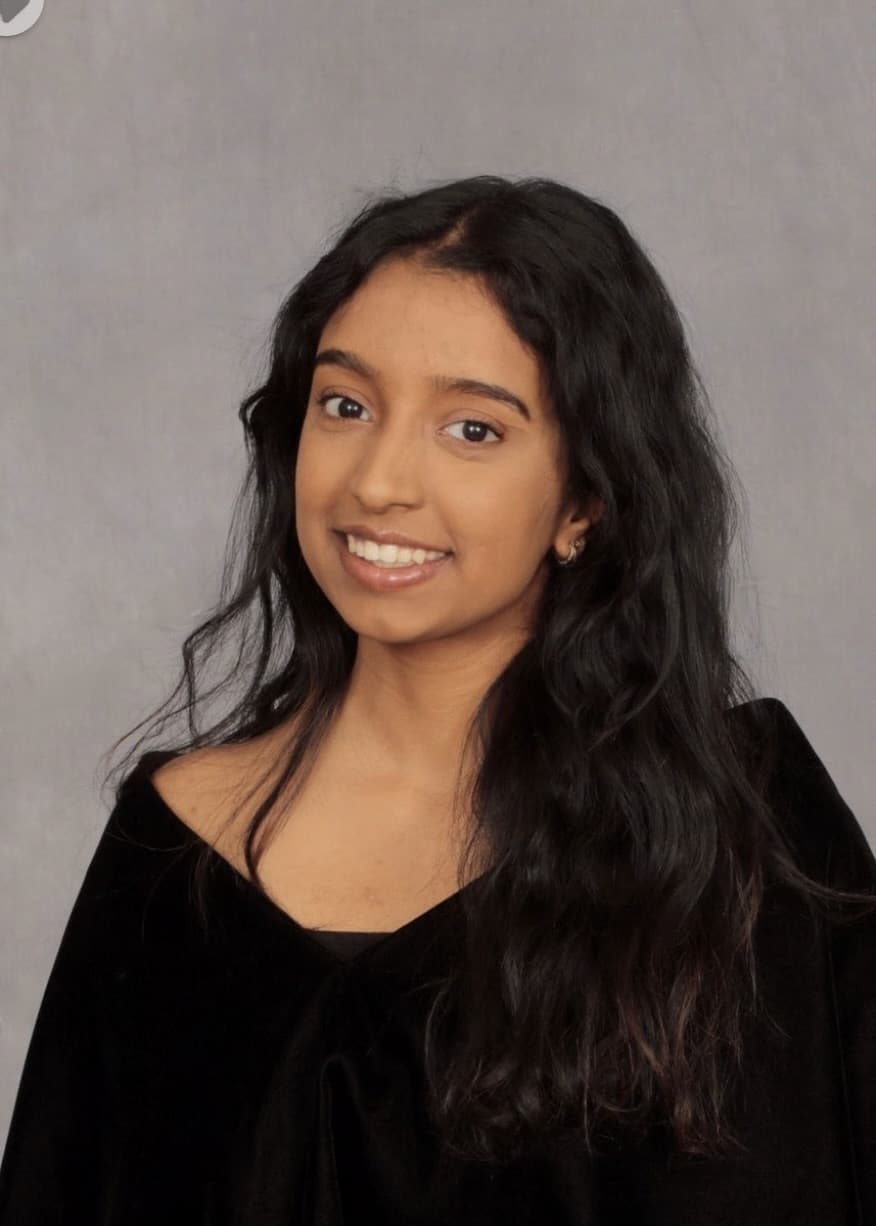Voting Closes In:
From March 4 at 9:00 am to March 7 at 5:00 pm, UTSG students will be able to cast their votes online to determine who will govern the University of Toronto Students’ Union (UTSU) for the 2024–2025 school year. Full-time UTSG undergraduate and Toronto School of Theology students; students in the transitional year program; and students in professional employment year programs can vote online at all hours through utoronto.simplyvoting.com. To read up on a candidate, click on the buttons below!
Presidential candidates
Vice-President, Finance & Operations
Vice-President, Public & University Affairs
Vice-President, Student Life
Vice-President, Equity
Vice-President, Professional Faculties
President
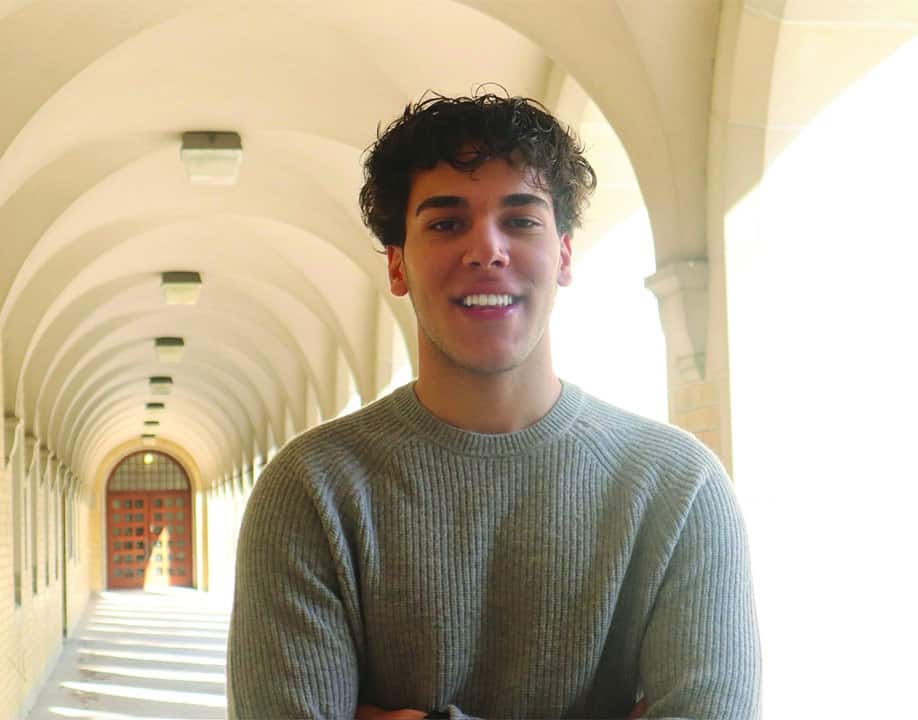
Shehab Mansour
Shehab Mansour is a third-year Rotman Commerce finance and economics specialist with a focus on data science. His campaign focuses on four things: student representation, affordability, revitalizing the UTSU student club membership, and improving U of T’s food services and student safety.In an interview with The Varsity, Mansour said he likes being active in a community but couldn’t do so during his first year because of COVID-19 restrictions.
It was only during his second year, when he became a New College residence don, that he got involved with a student community. “[Having seen students’] experience[s] on a daily basis and getting to hold one-on-one chats and floor-wide and residence-wide meetings with them… that really stands out,” he said.
Mansour said that his residence don position prepared him for this candidacy because he worked with activist and advocacy campus groups as well as the food services at New College. He emphasized that he wants to listen to students’ recommendations through a centralized student recommendation system — although the union already offers an anonymous feedback form on its website. He also plans to change the club recognition process and the available club support.
Jake Barton
“The current deal that students get when they come to university… I think that deal is undoubtedly at the worst point it’s ever been,” third-year international relations and public policy major and history minor Jake Barton told The Varsity. “So that’s why I’m running.” Barton hopes to advocate for students by engaging with the university, as well as provincial and federal levels of government.
His priorities include pushing the university to require that professors release a certain amount of students’ grades before the deadline to declare a course credit/no credit, improving “land use” to increase housing availability, and lowering campus food prices.
Along with advocacy, he pledged to increase financial support for unhoused students and create a separate social media account devoted to promoting events by UTSU-recognized clubs.
Barton specifically pointed to his experience as director of operations for the non-partisan organization the Young Politicians of Canada — which connects students to civil education opportunities — because, although he also serves as president of the U of T New Democratic Party, he sees the job of UTSU president as doing “what’s best for students, [which] does not follow one partisan line.”
To encourage transparency and engagement, Barton hopes to increase tabling around campus, require professors to mention the UTSU in course syllabi, and make orientation “huge.”
Aidan Thompson
This year, Aidan Thompson — a third-year student studying international relations and English — served as the UTSU’s vice-president public and university affairs (VP PUA). He told The Varsity that he hopes to continue his work with the union on matters of community-building and affordability.Thompson wants to “give people the opportunity to live near where they study.”
He said that, during his time as VP PUA, he advocated through multiple national student associations to secure more federal funding for housing. He pointed to the extra $15 billion in additional funding the federal government committed this fall to its Apartment Construction Loan Program — which the government recently announced it was opening to organizations building post-secondary residences — as a success he contributed to with that advocacy. He hopes to leverage this funding to build three new residences in three years: two built and operated by the university and one by the union itself.
Thompson is committed to getting students a universal pass that would allow them to board any Toronto transit, and introducing a co-op grocery on campus. “I’m here to try to make it easier, safer, and more affordable to be on campus and involved in university life.”
He also aims to get rid of the pay-by-weight and declining balance models at dining halls and hopes to deliver free long-term mental health services for students. Furthermore, he cites a need for regular UTSU event programming — such as a concert during orientation week — that will get people excited to be a part of U of T.
Thompson also advocates for greater transparency and action surrounding fossil fuel divestment and wants the UTSU to create a dedicated advocacy fund for student groups involved in activism.
The overall message of Thompson’s platform? “Build a better, brighter U of T.”
Vice-President, Finance & Operations
Elizabeth Shechtman
Having served as the union’s 2023–2024 president and 2022–2023 VP student life, Elizabeth Shechtman told The Varsity that, as VP finance and operations, she’d want to carry the projects she’s already started “to that finish line.”
A third-year double-majoring in economics and bioethics, Shechtman’s campaign focuses include increasing the union’s revenue by hiring a fund development coordinator who can liaise with sponsors and by raising funds that the union can use in providing services. She also aims to have a credit union take over the Student Commons space currently occupied by the Royal Bank of Canada — which contracted to rent the space until 2026 and which student activists have criticized for its fossil fuel investments.
Shechtman hopes to host town halls so the UTSU can connect with students outside of its annual general meetings and increase transparency through social media posts that explain the union’s policies and the fees students pay.
She argues that her knowledge of the union’s policies and financial situation helps her understand issues and policy ideas. “Putting all of that big picture together, I think, is the most important,” she said. Disclosure: Elizabeth Shechtman was an associate news editor for The Varsity in the 2021–2022 school year.
Dhir Shah
Dhir Shah, a third-year student specializing in mathematics with a major in economics, is an active member of the Victoria University Students’ Administrative Council as the current chief returning officer. He is also a senate executive at Victoria University. Shah’s campaign primarily focuses on improving the management of financial reports and leadership. In an interview with The Varsity, he said that he aims to “shift the mindset from increasing fees just to meet student needs to thinking about what we can do with the existing resources.”
Shah hopes to advocate additional investments in career development programs, sustainable campus initiatives, and mental health insurance coverage.
Additionally, Shah has committed to launching a “UTSU digital transformation project” that will improve student accessibility to university events and streamline operations by creating a mobile app and website revamp.
Concerning transparency, Shah said he plans to establish an external audit system — although the union already conducts an external audit each year, which it presents at its annual AGM. Shah also hopes to reduce the barriers between students and the UTSU’s financial reports by utilizing layman’s language to explain financial jargon.
“It’s really important that an operations director create an environment where people feel safe and they can freely raise their hand and say, ‘I disagree’,” he said.
With files from Caroline Bellamy.
Vice-President, Public & University Affairs
Avreet Jagdev
Avreet Jagdev — a third-year student double-majoring in political science and critical studies in equity and solidarity and minoring in women and gender studies — believes that, when it comes to advocacy, the UTSU has been “letting students down.”
Jagdev also ran for this position last year and is the founder and president of Students For Choice, an abortion rights advocacy club. She also serves as youth chair for the Ontario NDP, a national organizer for Amnesty International, and has been involved in organizing Palestinian advocacy around campus.
Her platform has two prongs. The first is “standing for students,” which means meeting students’ needs for housing and tuition affordability, food security, and health and wellness by better funding student services and opposing OSAP cuts.
Eli Miller-Buza

The second is “fighting for what’s right” — which, to Jagdev, means taking a firmer stance on advocacy for Palestine, climate justice, and gender-based violence. She thinks that the UTSU has demonstrated a lack of principle around these issues, opting for the most comfortable routes when it could be putting its power and resources to better use.
Elijah (Eli) Miller-Buza — a second-year student double majoring in peace, conflict, justice studies and geography — serves as an executive member of Enactus, a student group aimed at using business for social and environmental change. He also worked on Munk One’s Case Competition event.
Miller-Buza’s campaign focuses fall under the acronym HATS: housing, accessibility, transit, and safety.
In terms of housing, he wants to lobby the government to support universities in building more housing and provide further support to students who don’t live in residences.
To improve accessibility, he wants to make sure Accessibility Services is “more transparent and more accountable.” He hopes to streamline the process of signing up for Accessibility Services by creating a UTSU information portal that compiles all resources in one place.
For transit, he’s interested in “getting students places faster” and pushing the municipal government to expand the TTC youth fare to all undergraduate students.
Finally, Miller-Buza plans to improve road safety by working with the municipal government to add time to the crosswalk in front of Sidney Smith. To address the recent voyeurism incidents at New College, he hopes to work with U of T to install new full-height doors in all bathrooms on campus — something that the university already committed to doing in New College, according to an email sent to New College students.
For Miller-Buza, “this campaign is about doing well for students, looking out for the interests of students, and making sure they’re heard.”
Vice-President, Student Life
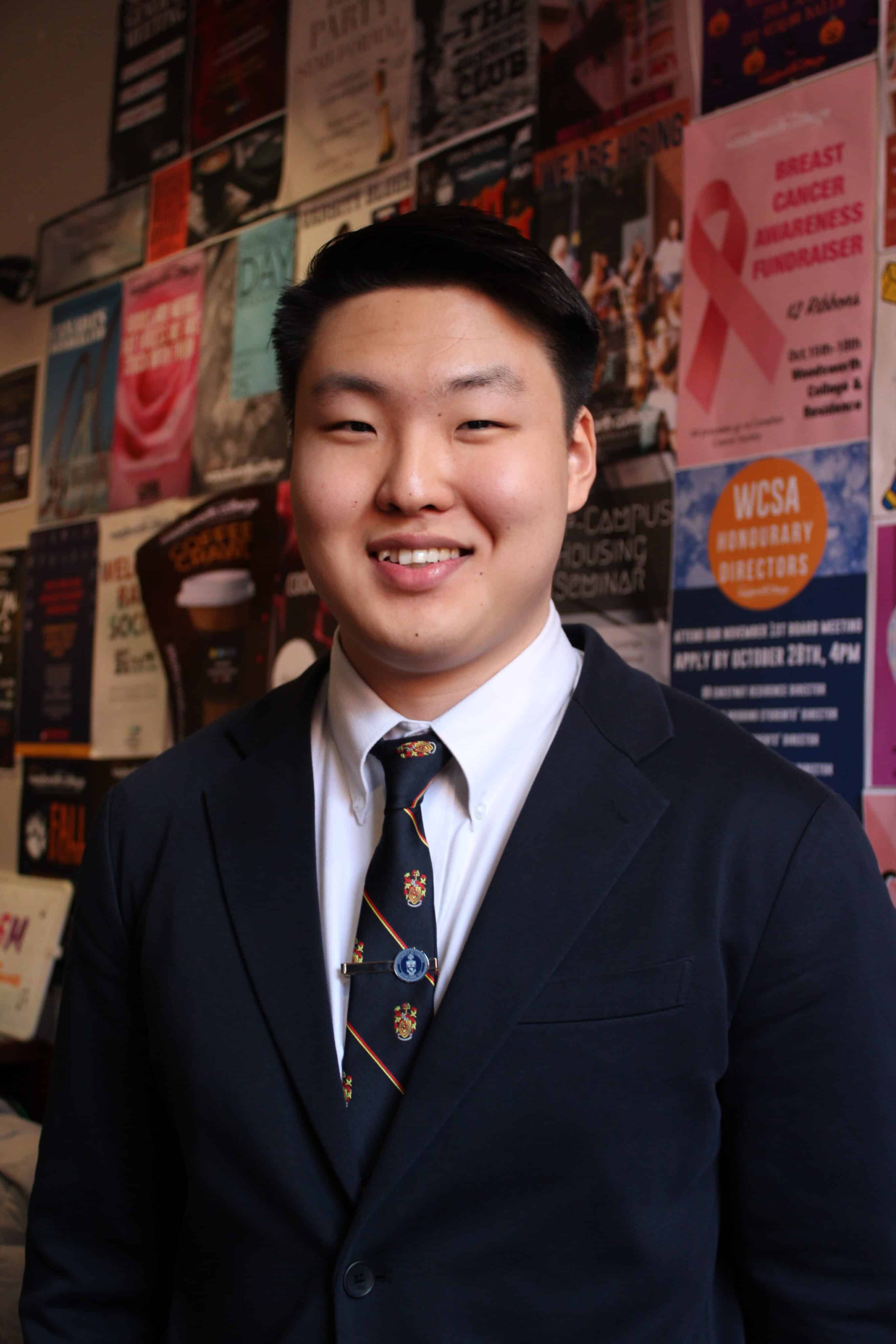
Paul Gweon
Paul Gweon — a second-year student pursuing a double major in political science and philosophy — has been involved with the Woodsworth College Students’ Association, where he transitioned from a community outreach and sustainability director to an upper-year students’ director in April 2023.
In an interview with The Varsity, he said that a key focus of his campaign is implementing a grocery rebate program to alleviate students’ financial burdens. Recognizing the challenges many students face in affording groceries, he hopes the rebate system will provide significant support to improve students’ overall well-being and academic success. “Not everybody uses public transportation, but everybody eats,” said Gweon.
Gweon also seeks to advocate for enhancements to transportation options, including TTC passes, bike-sharing programs, and rideshare initiatives.
Regarding orientation week, Gweon recognizes the overwhelming nature of the experience and proposes a more spaced-out approach to events. By extending the duration of orientation activities over two weeks and providing accessible online and in-person information sessions, Gweon aims to alleviate the stress of information overload and facilitate a smoother transition for incoming students.
Tala Mehdi
Third-year pharmacology and global health double major Tala Mehdi told The Varsity that her campaign is centred on prioritizing student clubs, specifically new ones and those promoting diversity and inclusion, through increased funding and resources. Since elementary school, Mehdi has been involved in student council positions. She is the current St. Michael’s College Student Union’s VP student organizations, and is the founder and president of the Arab Student Association at UTSG. “[Having been] on both sides of it — being in and leading a student club, while also supervising other student clubs around me — [these positions] gave me more of a holistic perspective on what needs to be done more for students and student clubs on campus,” she said. Mehdi plans to bring back the tri-campus parade at U of T, to better organize the layout of the UTSU clubs fair during orientation week, and to promote a UTSU concert.
Hunar Miglani

Miglani also aims to make transit more affordable by subsidizing students’ Uber or rideshare costs, adding that UTSU’s current rideshare program is inadequate because it only offers four dollars off two rides a month. The UTSU introduced and then prematurely ended its rideshare pilot program earlier this academic year after the program ran out of money.
Hunar Miglani is a first-year student who plans to major in political science and economics with a minor in psychology. She has interned with LaunchX — an organization that promotes entrepreneurship among youth — and through that, has connected with other students from all around the world. She was also secretary general of her high school’s Model United Nations team and the president of the school’s mock trial club. As VP student life, Miglani would like to help integrate international students into the campus community by hosting cultural functions where students from diverse backgrounds can share their perspectives and represent themselves. She believes this would help make U of T a more vibrant, tolerant space where every student can reach their fullest potential.
Miglani wants to increase awareness of the union, claiming that the greatest barrier that prevents students from taking advantage of UTSU services is that they don’t know the services exist.
Lellow Sedio
For the past two years, Lellow Sedio — a second-year student majoring in book and media studies and double-minoring in BPM and creative expression and society — has worked for the university as a Student Programming Assistant, where she had experience speaking with students one-on-one and creating programs catered to their needs.
Sedio recognizes the need for accessibility improvement in a few areas; she would like to broaden the extent of the UTSU’s current mental health insurance and ensure students with dependents and mature students are provided with resources tailored to them. If elected, Sedio hopes to help negotiate a transit fare discount through a U-Pass program and increase the accessibility of funds to student clubs. Sedio also stresses the importance of outreach to first years. She explains that orientation week feels like a hectic rush, and afterward, “it’s like every man for themselves.” Sedio hopes to improve orientation week to avoid new students feeling like they’re “rushing through it.” She also proposed that the UTSU coordinate with the colleges to offer more major campus-wide events throughout the year, such as gala events.
Serenity Tuyet Mai Bui
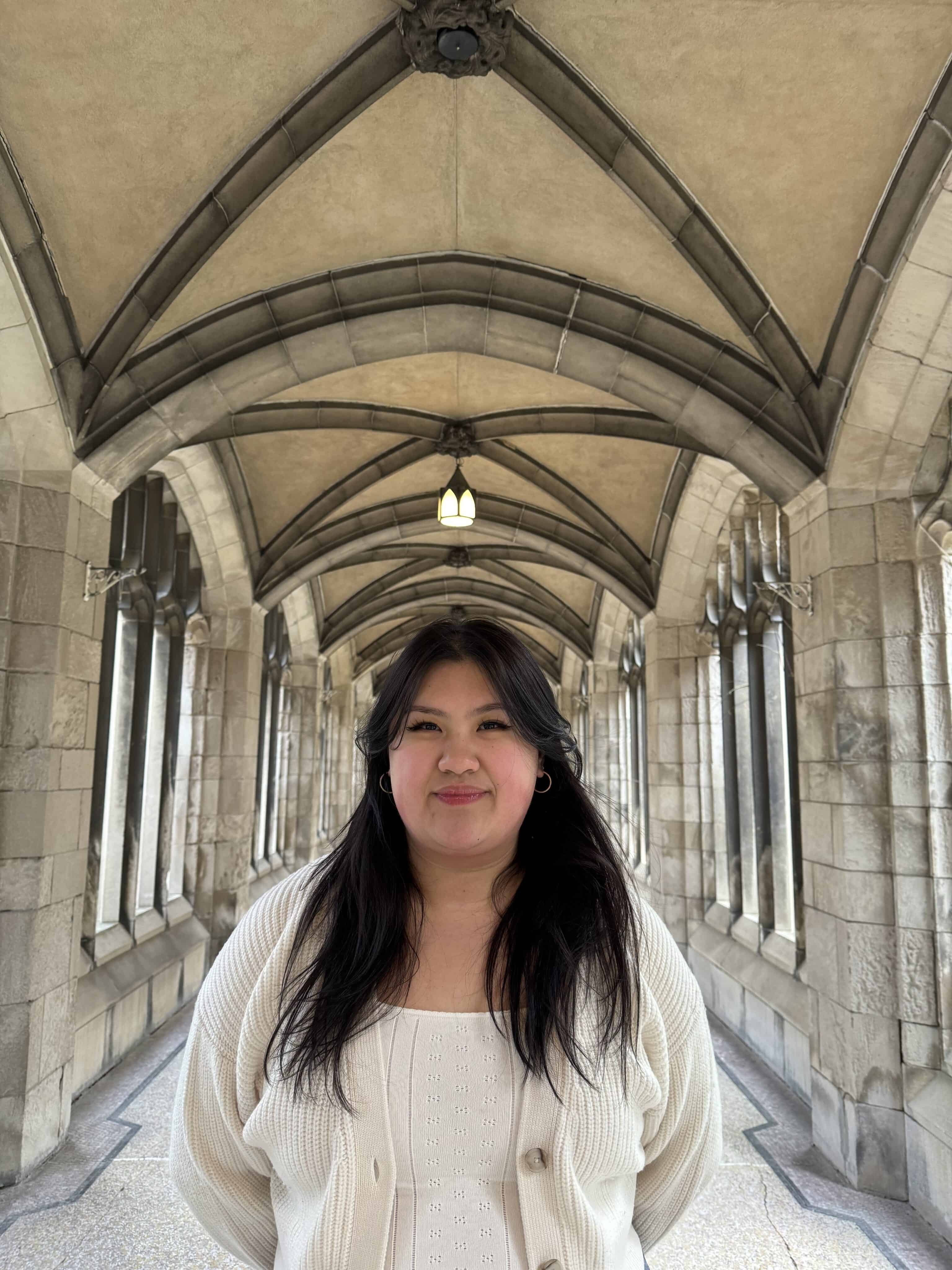
Serenity Tuyet Mai Bui — a second-year majoring in bioethics, sociology, and Buddhism, psychology, and mental health (BPM) — told The Varsity that she decided to run because she wants to help solve the issues that students have brought to her in her current role as a director on the UTSU’s board.
Bui currently serves as event coordinator for the Vietnamese Student Association, which she says has given her experience with planning and logistics. If elected, she pledged to focus on simplifying and promoting the processes for accessing funding and connecting with clubs on a “personal level” through more frequent check-ins and office hours where she can receive feedback.
Bui also aims to work with the TTC to implement a lower or subsidized fare given the high cost of living students face. She said that, at this point, doing so would be much more “feasible” financially than alternatives such as a full U-Pass like the one implemented at UTM.
Finally, Bui hopes to keep students involved by partnering with the colleges to run events during the day while students tend to be on campus and increasing tabling around campus.
“Being involved in the community has been really important to me,” she said.
Anna Xiao
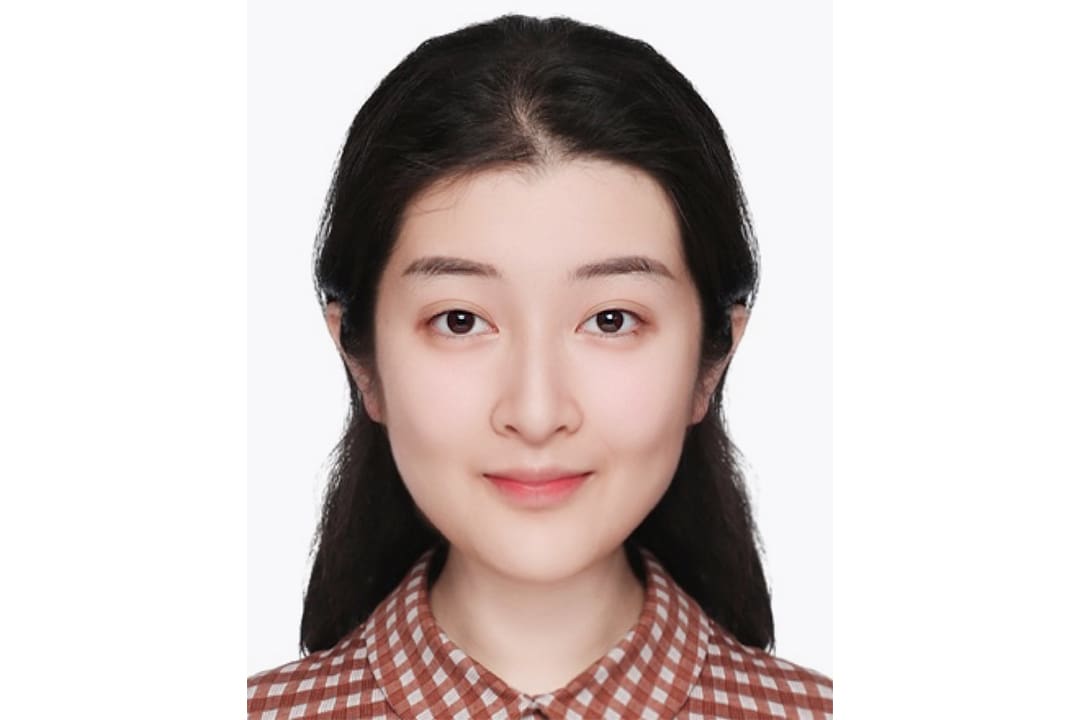
She also plans to set up suggestion boxes around campus for students to express how the UTSU can improve its work. For upcoming events, Xiao wants to send emails to students and set up posters to advertise future activities.
Xiao says, “I really want the students, like me, to be really proud of our identity as U of T students.”
Anna Xiao — a first-year student studying physical and mathematical sciences — currently serves as a first-year representative at the UTSU and has prior experience hosting and planning school events, including concerts and carnivals. Xiao described her campaign focuses as “multidimensional.” If elected, she plans on holding carnivals during reading week and planning student-led lectures. She hopes to improve the living environment for students by working with the U of T administration to postpone construction on campus to the summer instead of during the school year and by developing questionnaires for students to voice their ideas.
Vice-President, Equity
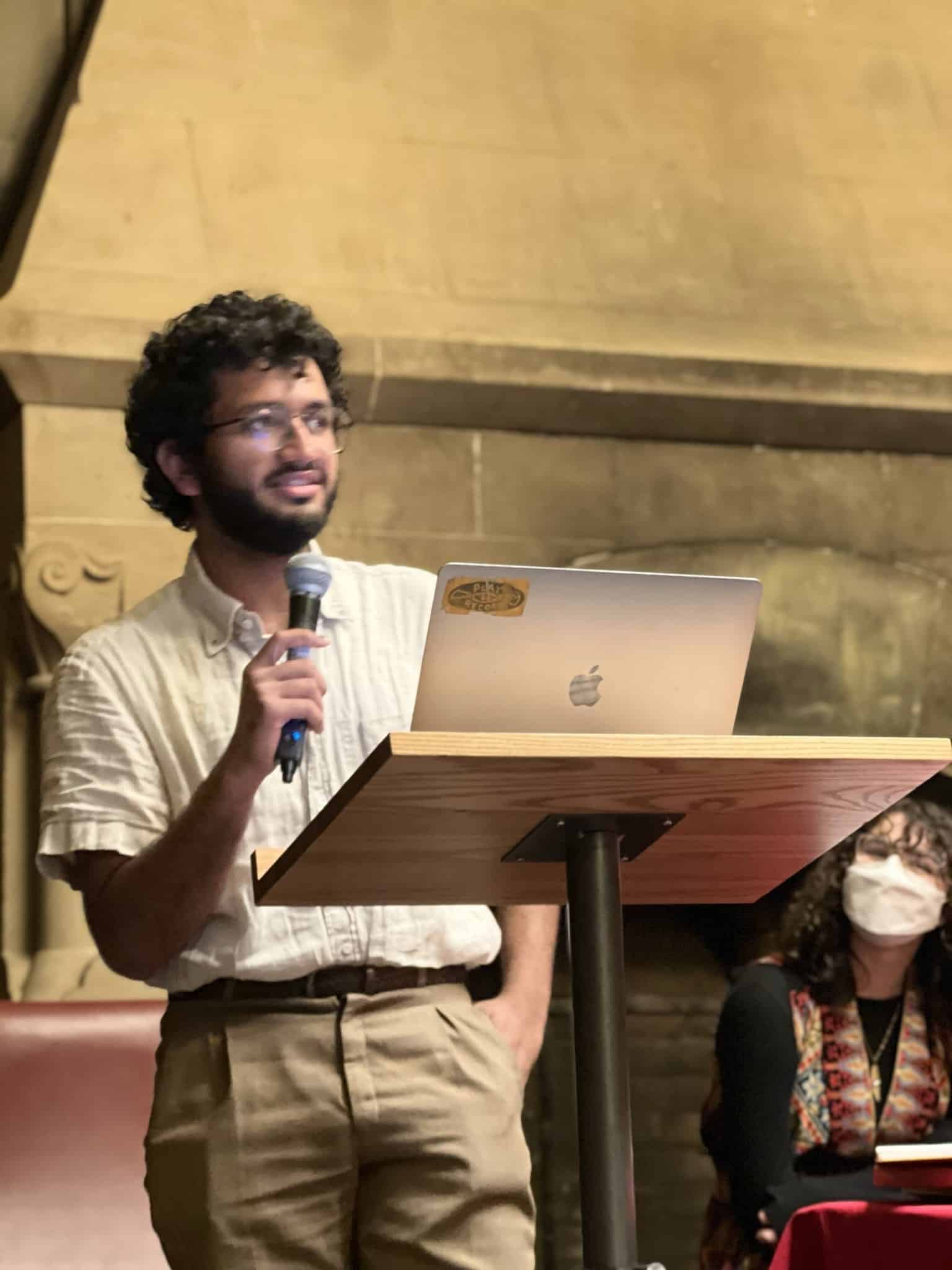
Aviral (Avi) Dhamija — a fourth-year double–majoring in philosophy and international relations — hopes to expand the UTSU’s scope to focus on structures that contribute to inequities.
Alongside organizing with progressive campus groups Students Mobilizing Against Systematic Hardship and Tkarón:to Students for Palestine, they told The Varsity about their experience producing a podcast series called UnCover that delves into equity issues on campus.
Dhamija noted that the current room booking policy presents “one of the biggest immediate material hurdles for any non-UTSU related club or political organizing” because groups often struggle to find spaces without long waits and high fees. Along with changing this policy, they also aim to partner with and create mutual aid networks where students can share food.
Dhamija’s concerns encompass those beyond the U of T campuses, saying that students play a “toxic role” by driving up prices for other Torontonians and that the university’s reliance on donor funding has “corrupted” it.
To support clubs, they want to create a public archive where groups can contribute research, zines, and information about how to navigate U of T’s bureaucracy.
“Every single student group should be wanting to talk to the UTSU, and the UTSU should do that by providing them a service,” they said. “And if they don’t want to talk to UTSU… that says something about the UTSU.”
Sakeena Mohammad — a third-year student studying public policy, political science, and French — served this year as a UTSU executive assistant to the president and as a third-year representative for the Public Policy Student Association.
In an interview with The Varsity, Mohammad emphasizes safety advocacy as a primary campaign focus, highlighting the importance of creating a secure campus environment in light of recent voyeurism incidents. She also hopes to advocate for tailored programming to further support underrepresented groups, particularly international students. Mohammad seeks to initiate dialogue with student clubs and cultural organizations to address shared challenges collaboratively. She aims to proactively engage with registered clubs under the UTSU, prioritizing meetings with the presidents and chairs of cultural and religious groups to develop policies reflecting their values.
Sakeena Mohammad
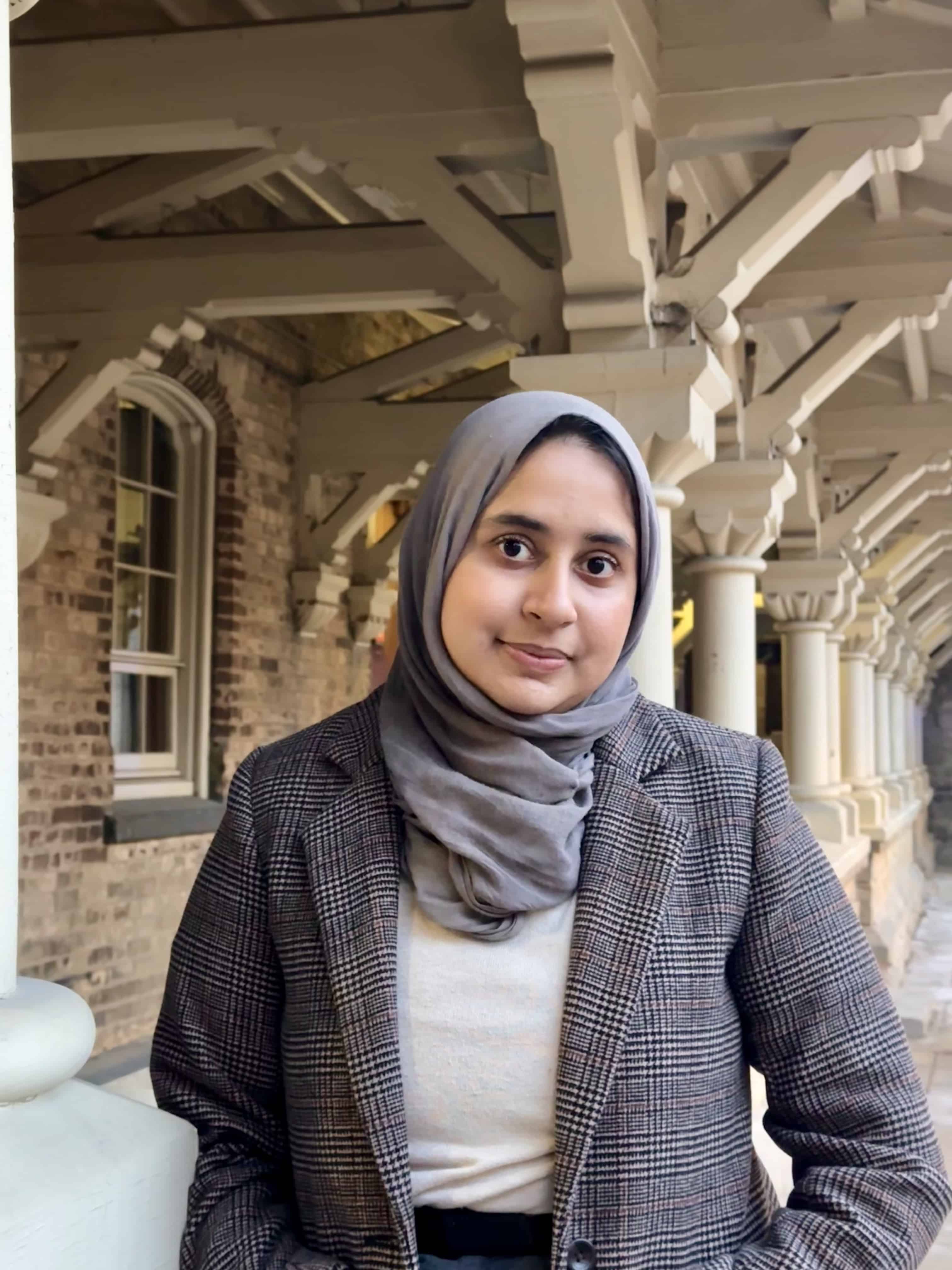
For Mohammad, “the U of T identity should be all of our student identities merged into a mosaic rather than being shoved away.”
Vice-President, Professional Faculties
Erica Nguyen
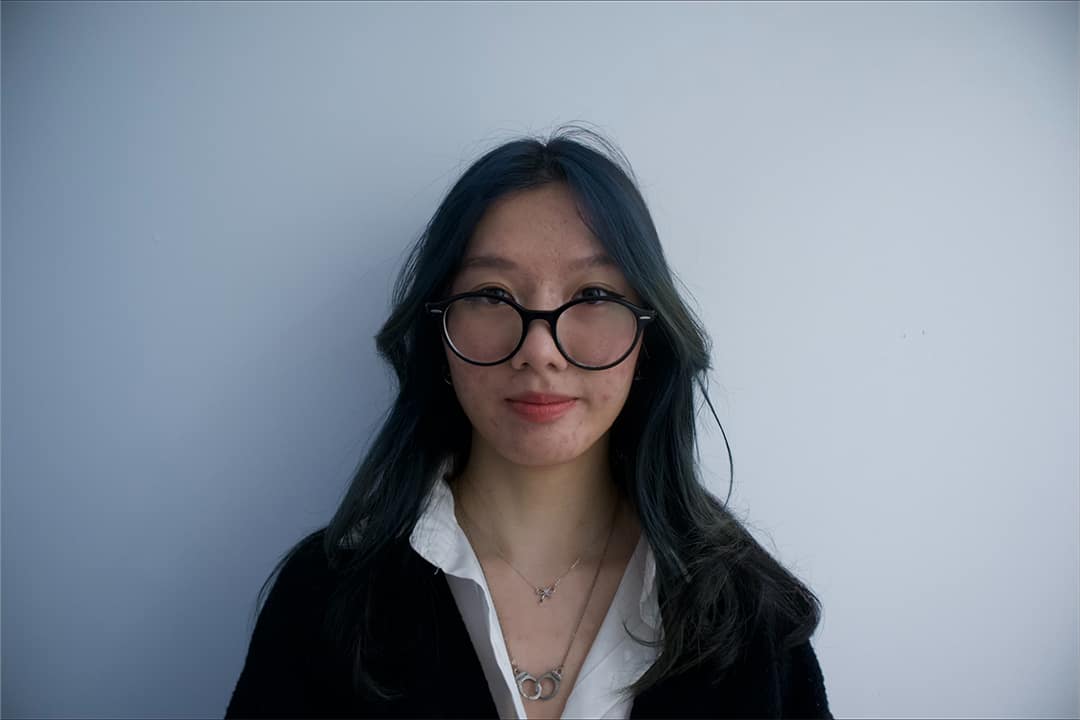
“Being part of the [professional faculties] allows me to advocate and understand the issues that are happening,” she said in an interview with The Varsity. “I’d really love to foster… connections with the other student unions and be able to bring those issues to light.” If she’s elected, she hopes to coordinate with student unions across the professional faculties, including lesser-known unions, to amplify their voices and help get sponsorship for student aid programs.
As a student in the professional faculties, Erica Nguyen — a third-year specialist in visual studies at the Daniels Faculty of Architecture — thinks a lot of these faculties are overlooked.
Nguyen is new to student politics, but she’s interested in the position because of her experiences as a visual studies student. Over the past year, she says she’s been learning a lot more about the UTSU. She feels like many of the union’s services for the professional faculties are underused because students don’t know about the benefits they’re paying for. She wants to raise awareness of those benefits and services so students can use them.
Nguyen’s campaign is focused on student aid across the board — she also wants to advocate for resources for students in unpaid placement programs in faculties like Pharmacy and Nursing. She wants to be able to hold more events, such as networking events, especially for “less represented faculties” on campus. She doesn’t have specific plans for how to resolve the disputes that have come up in the past year between the UTSU and the Engineering Society, but she’s hoping to “keep a good relationship” between them in the upcoming one.

